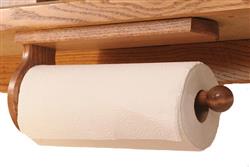Using Paper Towel Alternatives

Next time you need to wipe up a spill or dust something, instead of reaching for a paper towel, consider using a cleaning cloth, a reusable alternative for many hard surfaces around the home suggests the American Cleaning Institute. Whether you’re looking for something that’s made for a specific task or something that’s multi-purpose, there are a variety of types to choose from, including:
- Microfiber cloth: Made from tiny loops that are great for trapping dirt and grime, this versatile cloth can be used dry, wet, and/or with a cleaning product like dish detergent or surface cleaner. It can be used on a range of hard surfaces and is especially good at cleaning reflective surfaces. However, microfiber cloths are not compatible with disinfectant products, so be sure to check the instructions that come with the cloths before sing with a disinfectant.
- Terry cloth: Usually made of ei9ther cotton-polyester blend, the woven loops that form this cloth are designed to absorb a lot of liquid. Terry cloth is great for soaking up large spills.
- Polishing cloth: If you’re looking to po9lish silver or brass, a polishing cloth can help protect the item and distribute the polish more evenly.
To avoid cross-contamination, don’t reuse a bathroom cleaning cloth in another area of the home. Bathroom cleaning cloths can carry a risk of contamination with fecal, skin-borne or other pathogens, so it’s best to use separate cleaning cloths for other rooms.
How to Clean Cloths
How often you need to wash cleaning cloths will depend on how often you’re using them and what you’re using them for. Generally, you’ll want to wash them at least once a week. If you’re using them to clean up a lot of spills and stains, you may want to switch to a new cloth after a few days. If you’re wiping items that have touched bodily fluids or raw meat or fish, you sho7uld switch to a new cloth once you’re done cleaning.
Microfiber cloths attract lint and debris, so it’s a good idea to wash them separately from regular laundry. Rinse with water to flush out dirt before washing.
Other cloths to wash separately from regular laundry? Cleaning cloths that are heavily soiled or contaminated with bodily fluids, as well as cloths that have been used in the kitchen or bathroom. Rinse any solid matter out of the cloths before washing, if possible.
Check out the American Cleaning Institute’s Levels of Laundry guide for advice from the laundry safety experts on the enhanced precautions to take when laundering contaminated items.
When to Replace Cloths
With regular use, you’ll probably need to replace your cleaning cloths every few months. You’ll know when it’s time to retire them when they’re too worn out to be used effectively.


